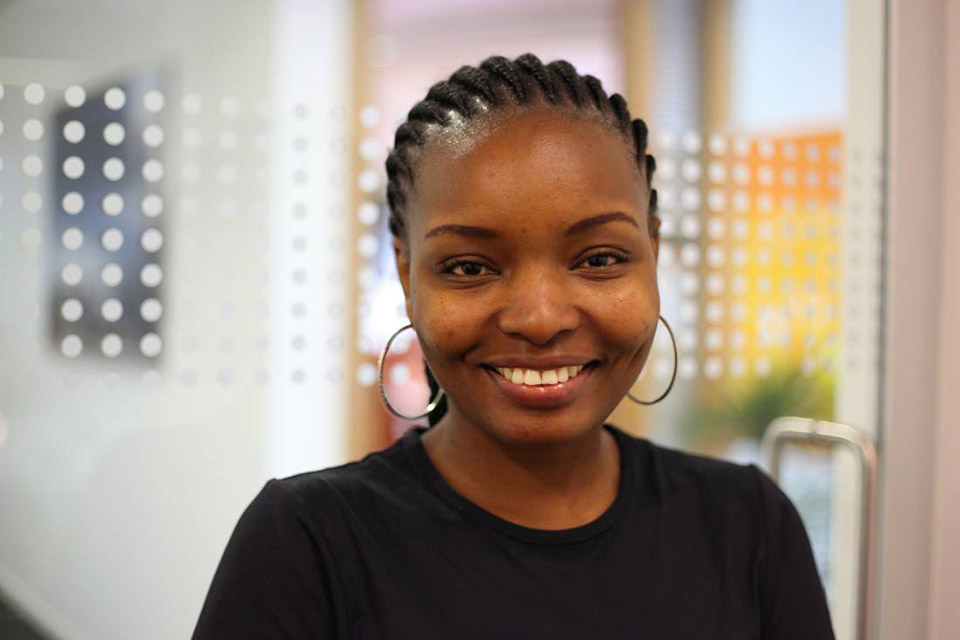Young Generation Equality Champions urge stakeholders to place women and girls at centre of COVID-19 response
Date:

The UN Women has partnered with Plan International, Msichana Initiative and the African Women Leaders’ Network (AWLN) in a virtual Roundtable Dialogue that sparked the need to keep the momentum of the UN Women Global Campaign: The Generation Equality – Realizing Women’s Rights for an Equal Future during the COVID-19 emergency.
In a Roundtable discussion Titled: “Keeping the Momentum of the Generation Equality Campaign” with the Theme: Placing Young Women and Girls at the Centre of the COVID-19 Response and Recovery, young panelists shared how they are innovating their work in their communities to help address the multi-layered impacts of the pandemic on young women and girls.
The Roundtable was moderated by 23-year-old Getrude Mligo, who is a Generation Equality Campaign Champion.
A set of resource persons comprising pioneers of the Beijing Platform for Action and other seasoned gender advocates shared strategies in response to presentations by the panelists, comprising youth organization leaders, gender advocates from the civil society and male champions for gender equality.
Over 130 participants from the government, the United Nations, development partners, women’s rights organizations, the civil society, youth organizations, the private sector and community-based networks participated in this Roundtable.
This was part of UN Women’s conversations with various partners to swap ideas on how to better support gender-sensitivity in the national response following the outbreak of COVID-19 in Tanzania in March this year.
Speaking at the Roundtable, the UN Women Representative, Ms. Hodan Addou explained the need to safeguard the hard-won gender equality gains made in the past decades, in the face of COVID-19. She called for strategic interventions informed by best practices driven by gender data for well targeted interventions that can help to safeguard women’s livelihoods; ensure girls’ can continue learning from home and to improve access to online education; and putting in place measures that can increase protection of women and girls from domestic and online violence.
“We need to up our game in support of women’s leadership in the COVID-19 Response and Recovery while women’s voices should be adequately represented at all levels and in all sectors,” Ms. Addou said, emphasizing the urgent need to push for gender-responsive stimulus packages ahead of the country’s national budget and to influence policy reforms and design of national programs based on the lessons learnt during the coronavirus disease emergency.
The Roundtable also discussed the need to sustain activities that promote intergenerational partnerships, with various stakeholders including the private sector, in line with the Generation Equality campaign, and to ensure the continuity of provision of essential services for the survivors of gender-based violence.
Speaking on behalf of Development Partners, Ms Riikka Raatikainen who is the Head of Cooperation at the Embassy of Finland and Chair of the Development Partners’ Group for Gender Equality reiterated the need to promote women’s leadership in all countries’ response to COVID, explaining this was a critical strategy to improve efforts towards addressing the needs of women and girls.
“In Finland, a team of five female ministers have been leading the COVID-19 crisis response. Only one of the main government party leaders is a woman, and over 40 years old while the rest of the women are below the age of 40. This is unprecedented in our history. Even with a long trajectory in policies that advance gender equality, we have never before had a leadership team like this. Girls are looking at this team in the news every day – the Government even organized a press conference for children where girls and boys were the ones asking questions. Girls are playing how to be a prime minister. Boys have been heard to ask whether also men could perform these duties,” Ms Raatikainen said.
In her keynote address, Ms Rebeca Gyumi, a Generation Equality Campaign Champion and Executive Director for the Msichana Initiative explained how young women and girls are making a difference to improve COVID-response in their communities. “I have witnessed how young people have collaboratively embarked on peer to peer campaigns using social media platforms to challenge the heightened violence against young women girls and their initiatives have inspired communities to take action and commit to gender equality. I have also witnessed young artists who have used their creative spaces to portray the type of community they envision, which is free from violence and discrimination,” Ms Gyumi said.
She further explained the need to support contributions by young women and girls, not to co-opt their ideas and downplay their urgency and leadership ability.
“Young women and girls need all of us as allies and supporters for intergenerational leadership and importantly, to promote co-leadership, which can help to strengthen our conceptual clarity and enable passing on of skills, tactics and approaches from senior women to young people for us to continue driving a robust women’s rights movement,” she said.